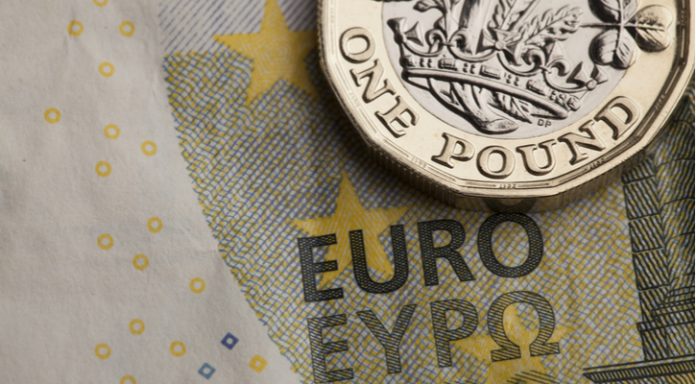Brexit and UK domestic political developments lifted the pound versus the euro on Monday. The pound euro exchange rate trended higher across the previous session reaching a peak of €1.1607.
The pound set off on the front foot on Monday after the European Union agreed to grant an extension to Brexit for the UK. President of the European Council, Donald Tusk, confirmed that EU leaders had agreed to give the UK a 3-month extension for Brexit. This now puts the deadline at the end of January. The pound advanced on the news. There had been concerns that France would not agree to such a long extension.
Following news of the extension, Prime Minister Boris Johnson tried for a third time to get Parliament to agree to an election. He failed to achieve the two thirds majority that the Fixed — Term Parliament Act requires him to have to hold a general election. However, Boris Johnson has decided to take another route to try to push for an election. Under the new route, using a simple bill, he would just need a simple majority.
The pound held onto gains as the immediate risk of an election has been reduced. Furthermore, Brexit has been extended meaning the UK has avoided a no deal Brexit on in two days’ time.
| Why is a “soft” Brexit better for sterling than a “hard” Brexit? |
| A soft Brexit implies anything less than UK’s complete withdrawal from the EU. For example, it could mean the UK retains some form of membership to the European Union single market in exchange for some free movement of people, i.e. immigration. This is considered more positive than a “hard” Brexit, which is a full severance from the EU. The reason “soft” is considered more pound-friendly is because the economic impact would be lower. If there is less negative impact on the economy, foreign investors will continue to invest in the UK. As investment requires local currency, this increased demand for the pound then boosts its value. |
Domestic political developments will continue to drive the pound today.
Euro Investors Look Ahead To Thursday’s Full Economic Calendar
In the absence of any high impacting eurozone data, the euro struggled for direction versus its peers in the previous session. Today the eurozone macro-economic calendar is quiet again. Investors will start turning their attention towards Wednesday, which sees a slew of data from the bloc released. These data points include French GDP, German unemployment, German inflation data and eurozone consumer confidence numbers.
Investors will pay particular attention to data from Germany. Market participants have been growing increasingly more concerned that Europe’s largest economy is on the brink of recession. More weak data could confirm these fears.
The European Central Bank eased monetary policy in September. Should Germany fall into recession the central bank could be forced to take further action, cutting interest rates again.
| Why do interest rate cuts drag on a currency’s value? |
| Interest rates are key to understanding exchange rate movements. Those who have large sums of money to invest want the highest return on their investments. Lower interest rate environments tend to offer lower yields. So, if the interest rate or at least the interest rate expectation of a country is relatively lower compared to another, then foreign investors look to pull their capital out and invest elsewhere. Large corporations and investors sell out of local currency to invest elsewhere. More local currency is available as the demand of that currency declines, dragging the value lower. |
| What do these figures mean? |
| When measuring the value of a pair of currencies, one set equals 1 unit and the other shows the current equivalent. As the market moves, the amount will vary from minute to minute.
For example, it could be written: 1 GBP = 1.13990 EUR Here, £1 is equivalent to approximately €1.14. This specifically measures the pound’s worth against the euro. If the euro amount increases in this pairing, it’s positive for the pound . Or, if you were looking at it the other way around: 1 EUR = 0.87271 GBP In this example, €1 is equivalent to approximately £0.87. This measures the euro’s worth versus the British pound. If the sterling number gets larger, it’s good news for the euro. |





